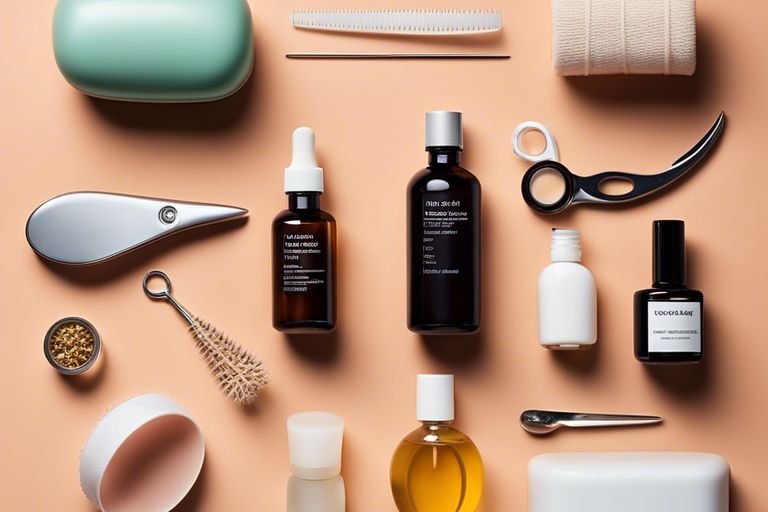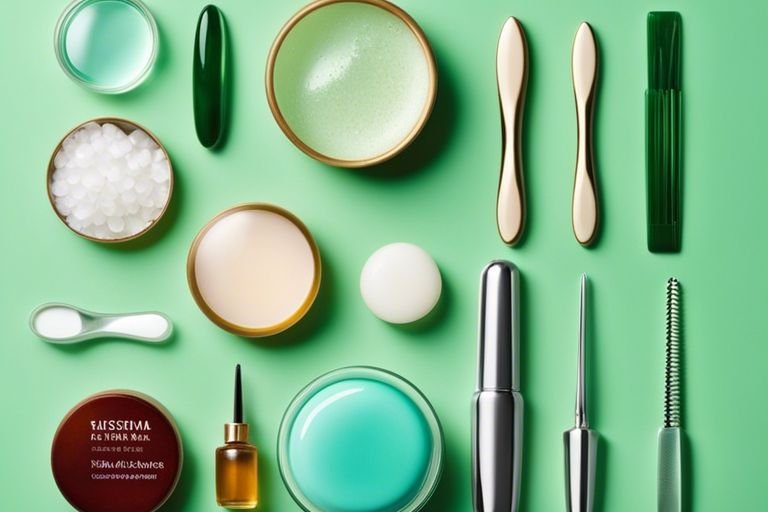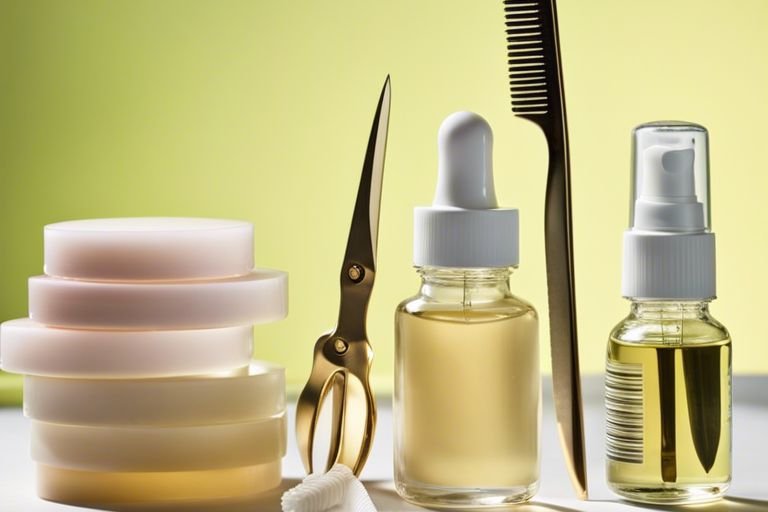Ensuring nail health and hygiene is not just about aesthetics, it is crucial for overall well-being. Healthy nails are a sign of good health, while poor nail care can lead to various infections and diseases. In this comprehensive guide, we will cover everything you need to know to maintain optimal nail health and hygiene. From common nail problems to best hygiene practices, we will provide you with expert tips and advice to keep your nails looking and feeling their best. Don’t underestimate the importance of nail care – it’s not just about pretty nails, but also about your health and hygiene.
Key Takeaways:
- Regular trimming and filing: Keep nails trimmed and filed to prevent dirt and bacteria build-up.
- Proper hygiene practices: Wash your hands regularly and use hand cream to keep nails and cuticles moisturised.
- Healthy diet and supplements: Ensure you have a balanced diet rich in nutrients like biotin to promote nail strength and growth.
Understanding Your Nails
When it comes to nail health and hygiene, it is crucial to understand the Nail Care Essentials: The Ultimate Guide. Your nails are more than just a canvas for nail art; they serve important functions in protecting the fingertips and enhancing dexterity.
Types of Nail Structures and Their Functions
Our nails are made up of different structures, each playing a vital role in nail health. The nail plate forms the hard surface we see, while the nail bed is the skin underneath that provides nutrients to the nail. The nail folds protect the sides of the nail, and the cuticle acts as a barrier against bacteria and fungi. Lastly, the nail matrix is where new nail cells are produced, allowing for nail growth and renewal.
Understanding the various components of your nails is crucial for maintaining their health and overall appearance. Thou, by taking care of each part, you can ensure strong, healthy nails that are less prone to damage.
| Nail Plate | Forms the hard surface of the nail |
| Nail Bed | Provides nutrients to the nail |
| Nail Folds | Protects the sides of the nail |
| Cuticle | Acts as a barrier against bacteria and fungi |
| Nail Matrix | Where new nail cells are produced for growth and renewal |
Factors Affecting Nail Health
Several factors can impact the health of your nails, from nutritional deficiencies to underlying health conditions. Environmental factors like excessive exposure to water or harsh chemicals can weaken the nails, making them more prone to breakage.
Perceiving and understanding these factors is key to maintaining strong and healthy nails. By addressing these issues and adopting good nail care practices, you can promote optimal nail health and prevent common problems such as brittleness and discolouration.
- Nutritional Deficiencies
- Underlying Health Conditions
- Environmental Factors
- Poor Nail Care Habits
Proper nail care involves not only cosmetic routines but also a focus on healthy habits and preventive measures. Regularly moisturising the nails and avoiding harsh chemicals can go a long way in maintaining their strength and resilience. Perceiving early signs of nail problems and seeking professional advice when needed can help address issues before they escalate.
- Moisturising Nails Regularly
- Avoiding Harsh Chemicals
- Seeking Professional Advice
Daily Nail Hygiene: Step-by-Step
When it comes to nail health and hygiene, following a daily routine is key to maintaining strong and beautiful nails. In this chapter, we will discuss the step-by-step guide to daily nail hygiene that will help you keep your nails in top condition.
Basic Nail Hygiene Tips
Basic nail hygiene involves simple yet crucial steps that you should incorporate into your daily routine. Firstly, keep your nails clean by regularly washing them with a mild soap and water. Trim your nails regularly using a nail clipper and file them in one direction to prevent splitting. Avoid biting your nails or using them as tools to prevent damage. Apply a moisturising hand cream to keep your nails and cuticles hydrated. Lastly, do not forget to wear gloves while doing household chores or gardening to protect your nails from harsh chemicals.
- Keep your nails clean by washing them regularly
- Trim your nails using a nail clipper
- Avoid biting your nails or using them as tools
- Apply moisturising hand cream to keep your nails hydrated
- Remember to wear gloves during chores to protect your nails
This basic nail care routine will go a long way in maintaining the health and appearance of your nails. Consistency is key when it comes to basic nail hygiene practices.
Advanced Nail Care Techniques
For those looking to take their nail care routine to the next level, advanced nail care techniques can help strengthen and beautify your nails further. Consider incorporating nail strengthening treatments into your routine to prevent breakage and promote growth. Additionally, massaging cuticle oil onto your nails and cuticles will help keep them healthy and nourished. Regularly exfoliating your hands can also improve blood circulation and promote nail growth.
- Use nail strengthening treatments to prevent breakage
- Massage cuticle oil onto your nails and cuticles
- Regularly exfoliate your hands to improve blood circulation
Advanced nail care techniques require more time and effort but can yield long-lasting results. To achieve strong, beautiful nails, consider incorporating these techniques into your nail care routine regularly.

Nail Health Tips and Tricks
When it comes to nail health, there are several tips and tricks you can follow to ensure your nails are strong and healthy. Proper nail care is essential not only for aesthetic reasons but also for overall health. By incorporating these tips into your routine, you can promote strong, healthy nails.
Tips for Maintaining Strong and Healthy Nails
1. Keep your nails clean and dry to prevent bacterial growth and infections.
2. Trim your nails regularly to avoid breakage and maintain a neat appearance.
3. Moisturise your nails and cuticles daily to prevent dryness and brittleness.
4. Maintain a balanced diet rich in nutrients like biotin, vitamin E, and iron for healthy nail growth.
5. Avoid using your nails as tools to prevent damage and breakage.
Any changes in your nails, such as discolouration or unusual growth, should be promptly addressed by a healthcare professional to rule out underlying health issues.
Pros and Cons of Various Nail Treatments and Products
When it comes to nail treatments and products, it’s essential to weigh the pros and cons before incorporating them into your routine. Different treatments and products offer various benefits and drawbacks that could impact the health and appearance of your nails.
| Pros | Cons |
|---|---|
| Strengthens nails | May contain harmful chemicals |
| Improves nail appearance | Can be expensive |
| Provides hydration | May cause allergic reactions |
| Offers protection | Can weaken natural nails |
| Helps in faster growth | Requires regular upkeep |
Before trying a new treatment or product, consider consulting with a nail specialist to understand how it may affect your nails in the long term. It’s essential to make informed decisions to maintain nail health effectively.
Nail Problems and Solutions
Having healthy and beautiful nails is an essential part of overall hygiene and self-care. However, many individuals struggle with various nail problems that can affect their appearance and confidence. In this chapter, we will explore common nail issues and their causes, as well as provide a step-by-step guide to treating these problems effectively.
Common Nail Conditions and Their Causes
One of the most common nail conditions is onychomycosis, also known as a fungal nail infection. This condition is caused by fungi that thrive in warm and moist environments, such as wearing damp shoes or walking barefoot in communal areas. Another prevalent issue is brittle nails, which can be attributed to nutrient deficiencies like biotin or iron, as well as frequent exposure to chemicals or water.
Step-by-Step Guide to Treating Nail Problems
When it comes to treating nail problems, it’s essential to start with the basics. First and foremost, maintaining good hygiene is crucial. Keep your nails clean and dry, and avoid sharing nail tools with others to prevent the spread of infections. Additionally, incorporating a balanced diet rich in vitamins and minerals can help improve the overall health of your nails.
| Common Nail Conditions | Possible Causes |
| Onychomycosis (Fungal Nail Infection) | Fungi thriving in warm, moist environments |
| Brittle Nails | Nutrient deficiencies, frequent exposure to chemicals |
For more severe cases or persistent nail problems, it is advisable to consult a dermatologist or a healthcare professional. They can provide specialised treatments such as oral medications or topical solutions to address the underlying causes of the issues. Recall, healthy nails not only enhance your aesthetic appeal but also serve as indicators of your overall well-being.

Professional Nail Care
Proper nail care is not just about aesthetics, but also about maintaining the health and hygiene of your nails. While personal nail care routines are essential, seeking professional nail care can further enhance the health and appearance of your nails. Nail health specialists are trained professionals who can address various nail concerns and provide expert treatments to keep your nails in top condition.
When to Seek Professional Nail Care
If you notice any signs of infection such as redness, swelling, or pus around your nails, it is crucial to seek professional nail care immediately. Ignoring these symptoms could lead to more serious issues such as nail fungus or bacterial infections. Additionally, if you have chronic nail problems that do not improve with home remedies, it is advisable to consult a nail health specialist for proper diagnosis and treatment.
Moreover, if you have undergone trauma to your nails or have experienced persistent pain that is affecting your daily activities, it is recommended to seek professional help. A nail health specialist can accurately assess the condition of your nails and provide appropriate care to alleviate any discomfort or prevent further damage.
What to Expect from a Nail Health Specialist
When visiting a nail health specialist, you can expect a thorough examination of your nails to identify any underlying issues that may be affecting their health. The specialist will then recommend suitable treatments or procedures to address your specific nail concerns. From nail trimming and shaping to targeted treatments for nail infections, a nail health specialist offers a range of services to promote nail health and hygiene.
Furthermore, a nail health specialist can provide professional advice and guidance on maintaining nail health between appointments. They may recommend specific nail care products or techniques that are beneficial for your nail type and condition. By following their expert advice, you can effectively manage your nail health and prevent future problems.

The Ultimate Guide to Nail Health and Hygiene
Proper nail care is essential for maintaining healthy and hygienic nails. By following the tips and recommendations provided in this comprehensive guide, you can ensure that your nails are strong, clean, and free from infections. Remember to trim your nails regularly, keep them clean and dry, moisturise your cuticles, avoid biting or picking at your nails, and protect them from harsh chemicals. By incorporating good nail hygiene practices into your routine, you can promote healthy nail growth and overall well-being. Prioritise your nail health, and your nails will thank you for it!
FAQ
Q: What are some common nail health issues?
A: Common nail health issues include fungal infections, ingrown nails, ridges, discolouration, and brittleness.
Q: How can I keep my nails healthy and strong?
A: To maintain healthy and strong nails, ensure you have a balanced diet rich in nutrients, keep nails trimmed and clean, moisturise regularly, and avoid using harsh chemicals.
Q: What is the best way to prevent fungal nail infections?
A: To prevent fungal nail infections, keep your feet clean and dry, wear breathable footwear, avoid walking barefoot in public areas, and refrain from sharing nail clippers or files.
Q: How often should I trim my nails?
A: It is recommended to trim your nails every 1-2 weeks to prevent them from becoming too long and to reduce the risk of ingrown nails.
Q: Can nail polish damage my nails?
A: Nail polish itself is not harmful, but consistently using nail polish without allowing your nails to breathe can lead to discolouration and brittleness. Ensure to give your nails breaks between polish applications.
Q: What should I do if I have an ingrown nail?
A: If you have an ingrown nail, soak your foot in warm water with Epsom salts, gently lift the nail, and keep the area clean. If the ingrown nail is severe or infected, seek medical attention.
Q: How can I promote nail hygiene?
A: To promote nail hygiene, wash your hands regularly, use a nail brush to clean under your nails, moisturise your cuticles, and avoid biting or picking at your nails.
